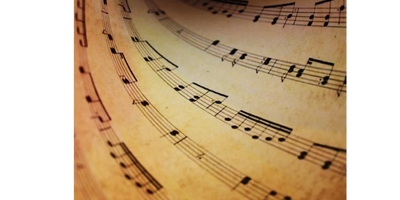Composer in Focus
Johann Sebastian Bach
Johann Sebastian Bach was born in
1685 in Eisenach in Germany and died in 1750 in Leipzig, Germany. He was a composer of the late Baroque period. Bach came from a large family of musicians. His parents died when he was 10 and he lived and studied for a while with his eldest brother, Johann Christoph, before attending school in Luneburg. During this time he sung in the choir, studied violin and music theory and became a virtuoso on the keyboard instruments of the time - organ, harpsichord and clavichord. For private study, he often copied out the music of other composers. On leaving school he held various posts, such as organist, court musician and director of music (Kapellmeister), at Weimar, Arnstadt, Muhlhausen, Kothen and Leipzig where he was director of church music (Thomaskantor) at St Thomas's Church and School. Bach often had difficult relations with his employers. He married his second cousin Maria Barbara Bach and upon her death he married Anna Magdalena Wilcke. He had many children, several of whom also became renowned musicians (eg Carl Philipp Emanuel Bach). At the end of his life Bach's eyesight failed and he spent his last months blind.
During his lifetime Bach was known mainly for his keyboard skills and his keyboard music. However, in the nineteenth century a performance of his St Matthew Passion in 1829 directed by Mendelssohn led to a revival of Bach's music. This was aided by biographies and the establishment of the Bach Gesellschaft (Bach Society) formed in 1850 by Robert Schumann and others for the purpose of publishing Bach's complete works. By the end of the nineteenth century all of his known music had been published and his reputation as one of the greatest composers of all time had been established. Bach was influenced by composers such as Pachelbel, Buxtehude, Corelli, Couperin, Lully, Vivaldi and Frescobaldi. His contemporaries were Telemann, Domenico Scarlatti and Handel (whom he never met). His music has influenced composers throughout the generations.
Bach expanded and developed the established styles of the Baroque period and took full advantage of the possibilities provided by the new tonal (as opposed to modal) system of keys in his use of harmony, and he became a master of counterpoint. He composed in almost every genre of the time except opera.
The piano, although invented in the early 1700's, had not become established in Bach's time, but his keyboard music is today played on the piano, with particular care being needed in the use of the sustaining pedal and in the part-writing.
Bach's works include:
Choral: Mass in B minor, St Matthew Passion, St John Passion, cantatas, motets, Christmas Oratorio.
Orchestral and Chamber music: orchestral suites, 6 Brandenburg Concertos, suites, sonatas and partitas for various instruments.
Organ: chorale preludes, sonatas, toccatas, fantasias, preludes and fugues.
Keyboard: partitas, toccatas, French and English suites, 2- and 3-part inventions, Goldberg Variations, Italian Concerto, the Well-Tempered Clavier.
